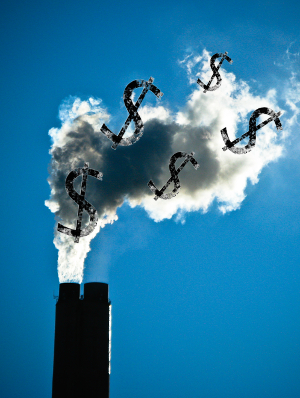Garnaut sees green profits
 A leading Australian economist says Australia can have zero emissions and still profit from minerals.
A leading Australian economist says Australia can have zero emissions and still profit from minerals.
Professor Ross Garnaut says action on climate change does not have to come at the expense of the economy.
In 2008, Professor Garnaut conducted a widescale review of the impact of climate change on Australia and its economy which made the grim but accurate prediction that the nation would face a more frequent and intense fire season by 2020.
With that prediction coming to pass, Prime Minister Scott Morrison faces scrutiny on his Government’s climate change policy.
Mr Morrison has suggested current emissions targets could change, but not at the expense of the economy.
“I'm not willing to put someone's job at risk, a region's future at risk. I'm not going to put up their electricity prices to do it, I'm not going to put a tax on them to do it,” he told the ABC on the weekend.
“I want to do that within a balanced policy, which recognises Australia's broader national economic interests and social interest.”
Professor Garnaut says authorities could have “done a lot more much earlier”.
“The tragedy has been building over a long time,” he said.
“Things will continue to get worse … until the world has zero net emissions of greenhouse gases.”
Professor Garnaut argues Australia could be a world leader in a zero-emissions world by processing its minerals using renewable energy.
“I think the point about avoiding cuts to the economy is a sound one,” he said .
“The way you make steel in a zero-emissions economy is using renewable energy to make hydrogen, to make steel, instead of using coal.
“The way you make aluminium in a zero-emissions world economy is to use renewable energy to turn bauxite and aluminium oxide into aluminium metal.
“Australia is by far the biggest exporter of aluminium ores and iron ores, [and] when the world is producing aluminium and iron without emissions, we'll be the place that's done. So it will be positive for the economy.
“So I strongly endorse the Prime Minister's focus on getting to zero emissions without damaging our economy. It can do us a lot of good.”







 Print
Print